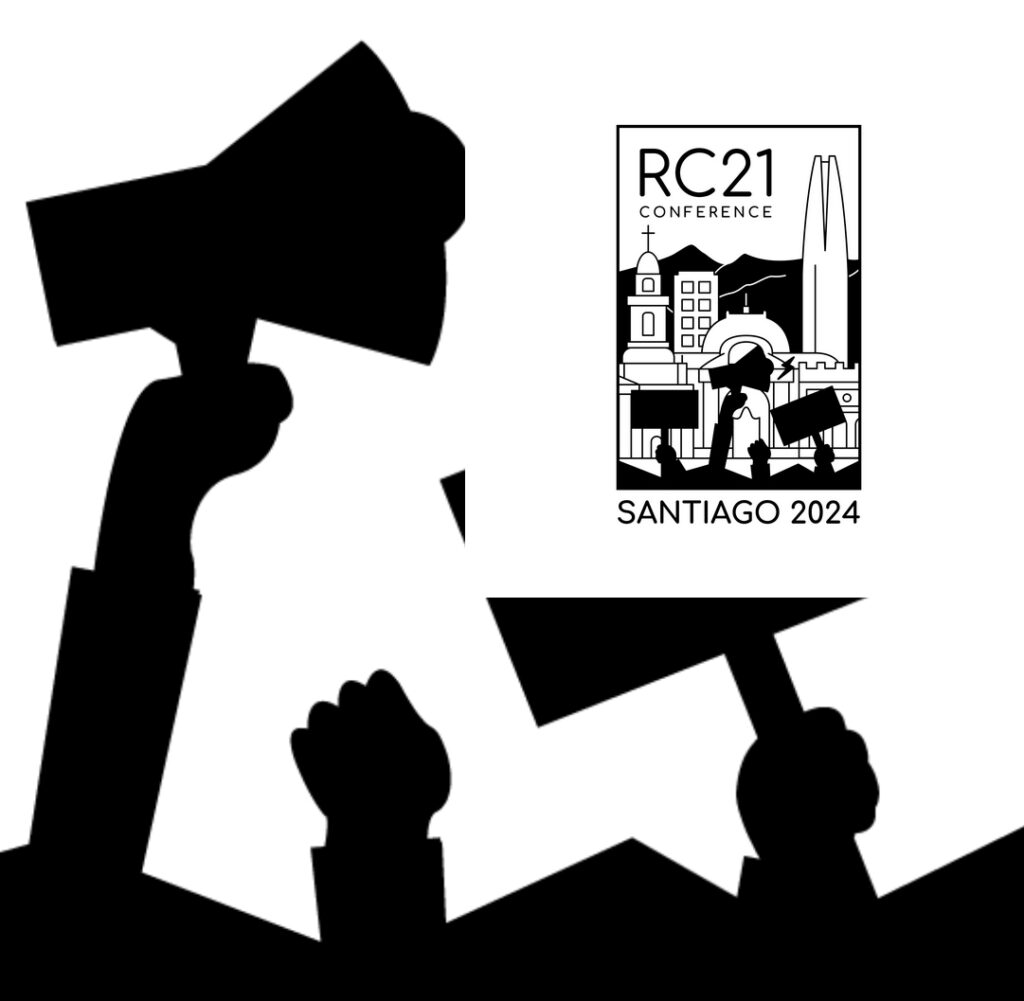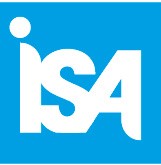
The Research Committee 21 (RC21) of the International Sociology Association, the International Journal of Urban and Regional Research (IJURR) and the IJURR Foundation invite applications for up to 25 places on our 7th Doctoral School in Comparative Urban Studies, to be held in Santiago de Chile from 14 to 26 July 2024.
RC21 – the Research Committee 21 on the Sociology of Urban and Regional Development of the International Sociological Association – is a non-profit scientific association established in 1970 to promote theory and research in the sociology of urban and regional development, and – in so doing – create an international community of scholars who will advance the field of urban and regional studies.
The IJURR Foundation (previously Foundation for Urban and Regional Studies) was set up in 1995 as a charity. Its main source of income is the surplus generated by the International Journal of Urban and Regional Research, run by a wholly-owned subsidiary of the IJURR Foundation. The aims of IJURR Foundation are to ‘promote and improve social scientific research, education and scholarship in the field of urban, rural and regional studies’.
The School is being held in conjunction with the RC21 Conference (24-26 July 2014) held in Santiago de Chile on the theme of “The politics and spaces of encounters: advancing dialogues between and within the Global North and the Global South” (see https://rc21conference2024.coes.cl/). The School is co-organised by RC21 in collaboration with scholars from several institutions in Santiago: the University of Chile (UCH) and the Pontifical Catholic University of Chile (PUC), working in cooperation through COES: the Center for Social Conflict and Cohesion Studies. The venue for the School will be the campus of the School of Architecture and Urban Planning (FAU) of the University of Chile.
The School is aimed at PhD students at the beginning of their doctoral studies. As in previous years (see https://www.rc21.org/en/summer-schools/), the School will focus on the interaction of theory, methodology and methods in the comparative study of cities. The aims of the Doctoral School is to address key questions such as: What research approaches, methodologies and methods are appropriate to make sense of the changes occurring in contemporary urban society? How should we make use of, or combine, different qualitative and quantitative sources of data and research methods? What is the value added of comparative research in urban studies to understand how and why cities across the world are changing? Within those discussions on theory, methods and comparison in urban studies, the themes of the 2024 edition of the RC21 Conference in Santiago de Chile will be addressed, for example the different contexts of socio-political conflict around the world and the role of space in them; the ways in which scholarship from the ‘Global South’ and the ‘Global North’ is interpreting urban and territorial processes in the context of the politics of encounters; the relational ways in which urban processes across the North-South divide are affected at different scales; the approaches to study “the North in the South” and “the South in the North”.
Format
The School provides PhD students at the beginning of their doctoral studies with an opportunity to learn from each other and from established scholars from diverse disciplines and parts of the world, through both formal classes and informal interactions. The language of the School will be English. The program includes 10 days of activities following by attendance at the RC21 conference. Sessions will typically comprise presentations by one or two scholars in the morning, providing insights into the use of various qualitative and quantitative methods in urban and regional research, and the theory and practice of comparison. Those sessions will draw from the scholars’ own research and entail a discussion with the students. In the afternoon, students will present and receive feedback on an individual paper presenting their doctoral research, in discussion with their peers and guest scholars, so as to link the discussion of research methods and approaches to their own work. In addition, a practical session will also be dedicated to how to get work published.
The School will offer a series of lectures covering and cutting across the above-mentioned questions and themes, linking theory and diverse methods, and giving visibility to voices and narratives that are often less known in mainstream urban theory. Special attention will be paid to Latin American cities, and especially to Santiago as the host city, through guest lectures and thematic field visits with local experts to see different realities in Santiago: “the North in the South”, “the South in the South”, indigenous housing and neighbourhoods, places of memory and protest, places of extraction/hinterland, etc. The draft programme will be available in due course in March-April 2024 and then regularly updated at: https://www.rc21.org/en/summer-schools/).
Confirmed contributors and speakers for the 2024 School include:
- From the Local Organising Team in Chile: Rodrigo Caimanque (University of Chile), Yasna Contreras (University of Chile), Macarena Ibara (Catholic University of Chile), Paola Jiron (University of Chile), Felipe Link (Catholic University of Chile), Michael Lukas (University of Chile), Maria Luisa Mendez (Catholic University of Chile), Quentin Ramond (Universidad Mayor), Javier Ruiz-Tagle (Catholic University of Chile)
- From the rest of the world: Prof. Alberta Andreotti (University of Milan-Bicocca, Italy); Prof. Julie-Anne Boudreau (UNAM, México), Prof. Patrick Le Galès (CNRS, Sciences Po, France); Prof. Jennifer Robinson (University College London, UK) … and other scholars to be confirmed soon!
Selected participants will be required to (i) send a piece of writing on their research 6 weeks before attending the School and (ii) do a number of readings in advance. Participants will receive access to a shared folder with readings and materials for the School. The language of the School will be English. Students are also expected to attend the RC21 conference (24-26 July 2024) which follows the School.
Fees and scholarships
For students registered for a doctoral research degree in an academic institution located in countries classified in the ISA category A (see https://www.isa-sociology.org/en/membership/table-of-economies-by-category):
- The full fee for the course is EUR 800. This amount covers the organisational costs and includes accommodation for 14 nights (in guesthouses or halls of residence), a welcome and a final reception/dinner, online access to readings and teaching materials, the registration fee for the RC21 conference, and RC21 membership for 4 years. The payment of the fee will be due in May 2024 by bank transfer, once the results of the selection process are known.
- A small number of partial scholarships (= subsidizing a portion of the fee) for students currently registered for a doctoral research degree in an academic institution located in countries classified in the ISA category A(see: https://www.isa-sociology.org/en/membership/table-of-economies-by-category) will be available, subject to funding.
For students currently registered for a doctoral research degree in an academic institution located in countries classified in the ISA category B & C (see https://www.isa-sociology.org/en/membership/table-of-economies-by-category):
- Funding from the IJURR Foundation and RC21 allows us to offer between 12 and 15 full scholarships to students currently registered for a doctoral research degree in an academic institution located in countries classified in the ISA category B & C. Scholarships will cover reasonable travel expenses (in economy class), visa costs, accommodation for 14 nights (in guesthouses or halls of residence), a welcome and a final reception, online access to readings and teaching materials, the registration fee for the RC21 conference, and RC21 membership for 4 years. The scholarships will not cover daily subsistence expenses (meals, drinks, local transportation costs).
- Important note: The travel expenses of student participants who are granted a full scholarship will have to be paid upfront by the participants, and will be reimbursed shortly after the School upon presentation of the corresponding receipts and original tickets.
Application procedure
Eligibility: The School is aimed at PhD students at the beginning of their doctoral studies (1st or 2nd year ideally), who are still finalizing their research design and methodological approaches and have not started – or not yet finished – their field work. The School is not suitable for students who are at the end of their PhD studies, as it focuses on introducing and discussing the use of various research designs and methods, and thinking about the development of comparisons in urban studies.
In order to apply for the 7th RC21-IJURR Doctoral School in Comparative Urban Studies, interested candidates are required to:
1) Fill in the online application form here:
https://docs.google.com/forms/d/1HwiQGz7hx7klNKRH3neXIm68oYz1qizaAPxoi-ZrErI/
2) Send the following documents to this email address: RC21summerschool@gmail.com
- A CV in English;
- A motivation statement following the template provided below, including the names and contact details of two scholars who will act as referees;
3) Ask two scholars who know you well (e.g. your PhD supervisor and another person) to send two reference letters by email directly to RC21summerschool@gmail.com (sent from their institutional email address on headed paper, rather than from a personal email address, if it is possible)
The deadline for application (both the submission of the online form and the submission of all the above-mentioned documents sent at the email address provided) is 9 FEBRUARY 2024 at midnight GMT.
The selection process will take place in February 2024 (the applications will be assessed by senior scholars from the RC21, IJURR and IJURR Foundation boards and from the Local Organising Team of the Santiago de Chile conference). You will be informed about the outcome of your application at the beginning of March 2024.
7th RC21-IJURR Foundation-IJURR Doctoral School in Comparative Urban Studies
Santiago de Chile, 14-26 July 2024
MOTIVATION STATEMENT from [NAME]
(maximum 3 pages of A4)
-Briefly introduce yourself and your academic/disciplinary background.
-Why do you want to participate in the School and how would you benefit from it?
-What specific perspectives, experience, and expertise would you bring into the discussions during the School?
-What is the topic of your postgraduate or doctoral research? Provide a short abstract (half a page), including the geographical focus, comparative nature (if relevant) and/or case-studies.
-Which research methods are you thinking of using in your research?
-Which urban theories or key concepts are you thinking of using in your research?
–Please provide the name and full contact details (including e-mail addresses) of two academic referees who know you well, and specify your link to them. You need to ask the referees to send a reference letter by e-mail directly to RC21summerschool@gmail.com (sent from their institutional e-mail address, rather than personal, if it is possible)



